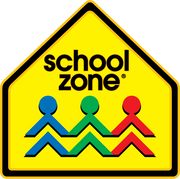At School Zone, we believe math can be an exciting adventure for first graders! Making math enjoyable at this early stage is vital, as it lays the foundation for strong thinking skills and academic success. By introducing math concepts in a playful way, children are more likely to develop a positive attitude towards learning and problem-solving. According to Early Childhood Mathematics: Promoting Good Beginnings, early exposure to math nurtures critical thinking and analytical skills that are essential throughout life.
Engaging math problems for 1st graders
First graders are just starting to grasp basic math concepts like addition and subtraction. These skills can be introduced through engaging problems that are both amusing and educational. Here are some math problems perfect for first graders:
- Simple Addition: Use everyday items like toys or snacks to create addition problems. For example, "If you have 3 apples and get 2 more, how many apples do you have in total?"
- Basic Subtraction: Frame subtraction problems using relatable scenarios. For instance, "You have 5 balloons, and 2 fly away. How many balloons are left?"
- Counting Exercises: Encourage counting objects around the house or classroom to reinforce number recognition and sequencing.
- Word Problems: Create short stories that involve math problems, improving both math and reading comprehension.
These types of math problems can be practiced at home or in the classroom, providing a strong base for more complex math later. By integrating math into daily activities, children can see the relevance of math in their everyday lives, making learning both fun and meaningful. For more resources, explore School Zone's First Grade Collection.
Creative math quiz ideas
Making math enjoyable for first graders can be as simple as incorporating fun math quizzes into their learning routine. These tools make learning interactive and help reinforce essential skills.
- Group or Individual Quizzes: Organize quizzes that can be tackled individually or in groups, encouraging teamwork and healthy competition.
- Math Riddles: Use simple riddles involving basic addition and subtraction to encourage thinking.
- Story Problems: Create stories that require solving math problems, making the exercise both educational and entertaining.
Structured practice reinforces learning effectively. Here's how you can incorporate it:
- Daily Practice: Integrate math activities into daily routines to build consistency.
- Progress Tracking: Track progress to identify areas needing improvement.
- Reward System: Implement a reward system for completing tasks to motivate and engage children.
Basic math skills in everyday life
Understanding basic math is crucial not just for academic success, but also for handling everyday tasks. Math skills help children make sense of the world around them. Here are some everyday scenarios where math is essential:
- Shopping: Counting money and understanding prices are practical applications of math.
- Cooking: Measuring ingredients involves basic arithmetic and fractions.
- Time Management: Reading clocks and managing time require an understanding of numbers and sequences.
- Travel Planning: Estimating travel time and distance uses basic math concepts.
By integrating these real-world applications into learning, children can see the relevance of math in their everyday lives, making the subject more relatable and engaging. Check out our Math Collection for more ideas.
Fun and interactive math games
Introducing interactive games is a fantastic way to teach math concepts to first graders. These games turn learning from work into fun. By engaging children in playful activities, they not only learn math but also develop a love for the subject. Here are some ideas to get started:
- Counting Games: Use everyday items like blocks or toys to make counting fun. Ask your child to count them, group them, or even create simple addition and subtraction problems.
- Number Matching: Create a matching game with cards that have numbers and corresponding dots. This helps in recognizing numbers and understanding quantities.
- Shape Hunts: Go on a shape hunt around the house or outside. Encourage your child to find objects that match specific shapes, like circles, squares, and triangles.
- Board Games: Classic board games that involve counting spaces or adding up points can be both educational and entertaining.
For more creative game ideas, explore the resources available on Oxford Owl for Home.
Digital learning tools for math practice
Digital learning tools have transformed how kids learn math. These tools offer interactive and personalized experiences that can fit each child's way and speed of learning. Here's why they are beneficial:
- Interactive Learning: Digital apps often include interactive elements like animations and sound effects that make learning more engaging.
- Progress Tracking: Many apps allow parents and teachers to track a child's progress, helping to identify areas that need more focus.
- Flexible Learning: These tools can be used anytime and anywhere, providing flexibility for busy families.
One excellent resource for digital learning is School Zone's Anywhere Teacher online learning platform. It offers a wide range of activities designed to strengthen math skills in a fun and interactive way.
For print learning, consider our Big First Grade Workbook. Other tools for helping littles like math include the Math Grades 1-2 Flash Cards 4-Pack and Math War Addition & Subtraction Game Cards,
Adding math learning for 1st graders can be fun and work well. By using engaging math problems, creative quizzes, and interactive games, children can develop a strong foundation in math. Everyday activities provide an excellent opportunity to practice basic math skills, making learning a natural part of their daily routine. Additionally, digital learning tools offer a modern way to reinforce these concepts, allowing children to learn at their own pace.
We encourage parents and educators to explore the wide range of resources available on the School Zone website. School Zone provides tools that support math education in a fun and accessible way. These resources are designed to help children excel academically and build confidence in their math abilities.
By integrating these strategies and resources into your child's learning journey, you can help them develop a love for math that will benefit them throughout their academic career and beyond.











